The other day I bumped into Roger, a university lecturer and dear colleague of mine. He looked all worked up, and before I could ask what the matter was he cried:
"Students these days! They expect to be handed education on a plate! Education is NOT a service!"
I murmured in agreement, uttered a few words of consolation and thought no more about it…
That was, at least, until later that afternoon. I Googled the definition of a service and found a reliable source:

According to the definition above, education could well be considered a service. After all, universities and teachers do get paid to teach, either by students, the government, or both.
And yet it doesn't feel right to put education in the same category as, say, a barber. That is, it turns out, because services differ, and one way to differentiate them is the extent to which a customer needs to collaborate with the service provider in order to get what they need out of the service.
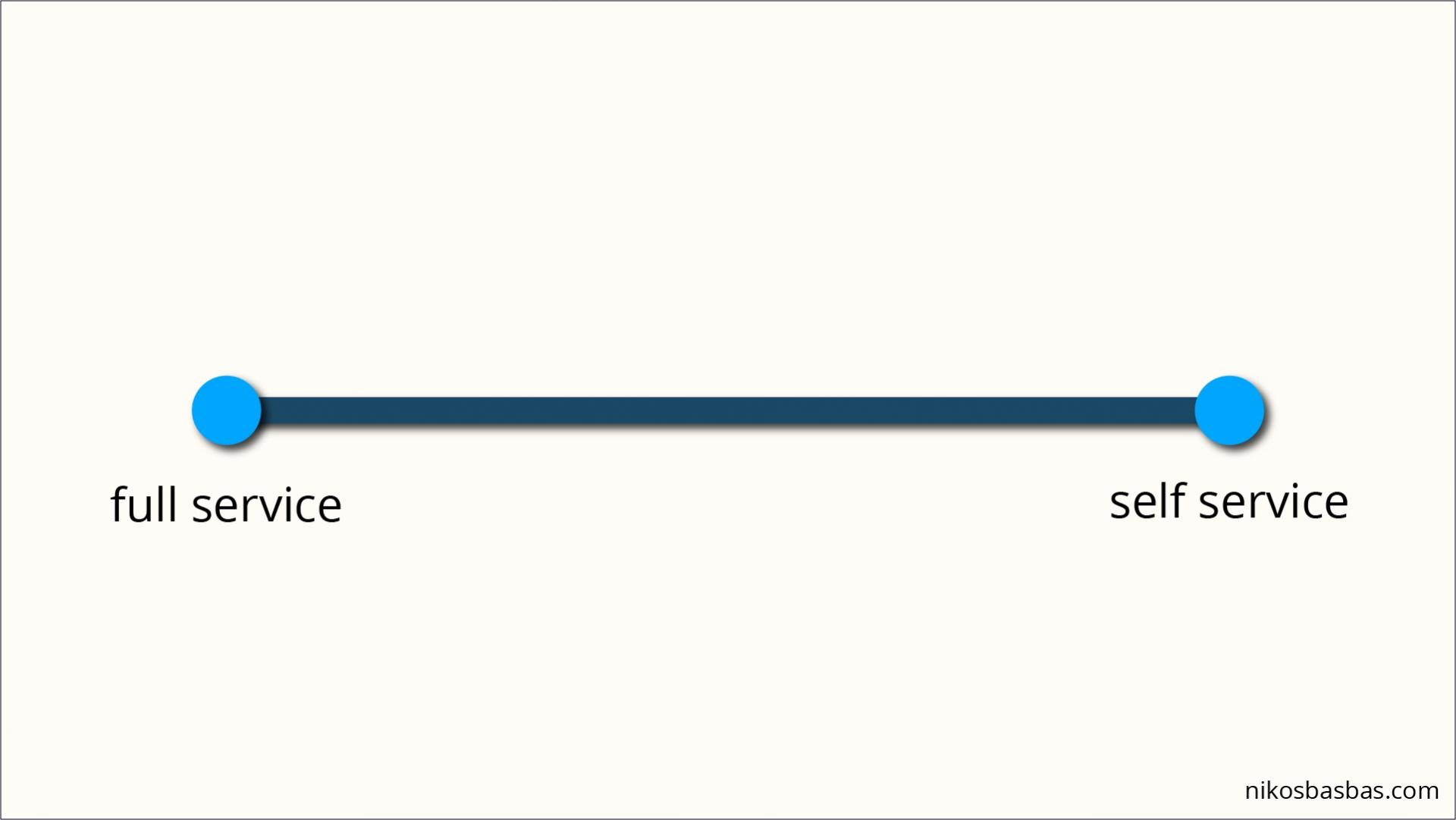
In a barbershop, all a customer has to do is sit still and occasionally tilt their head slightly.
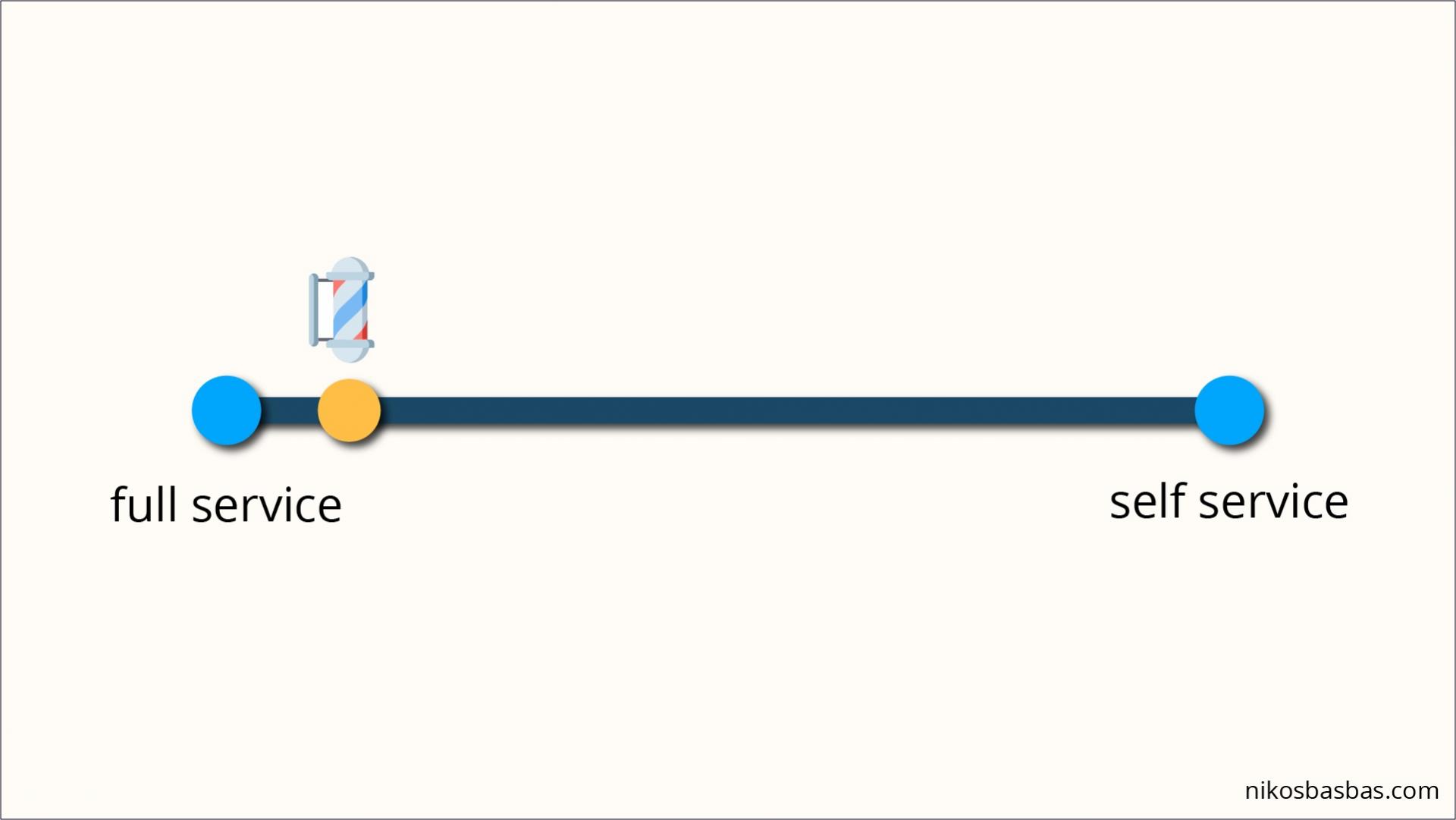
Most higher educational institutions stand on the opposite side of the spectrum with, for example, gyms. To get fit, one must exercise, which is a lot of work. Similarly, to get educated, one must study.
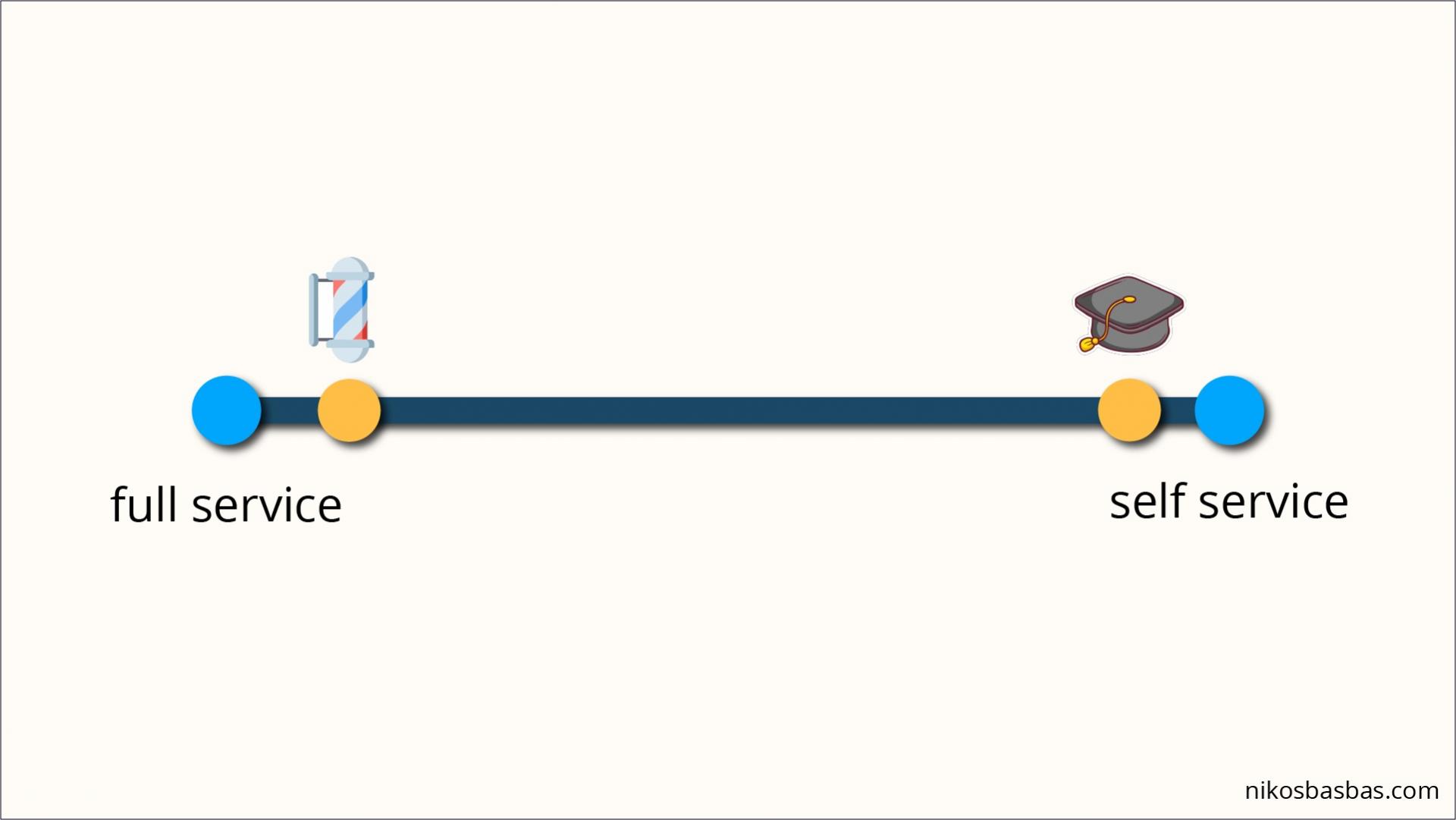
The reason for this is our biology. Nature decided a long time ago that the operating principle of both our muscles and brains is no pain, no gain, and there is simply no other means to grow muscle and obtain knowledge than working hard. Or is there?
It turns out there is - at least in part. In a bid to get fit, one can outsource some of the hard work to electricity. Surge, a fitness studio in the UK, offers a full-body workout in just 20 minutes by, in a manner of speaking, plugging you into a wall socket.

In education, it is also possible to outsource some of the decision making, motivation, and planning to technology. Duolingo, a language learning app, takes away the need for planning by instead sending notifications to the learner reminding them to practise, suggesting which skills to hone on a particular day, and motivating them by gamifying the learning experience.
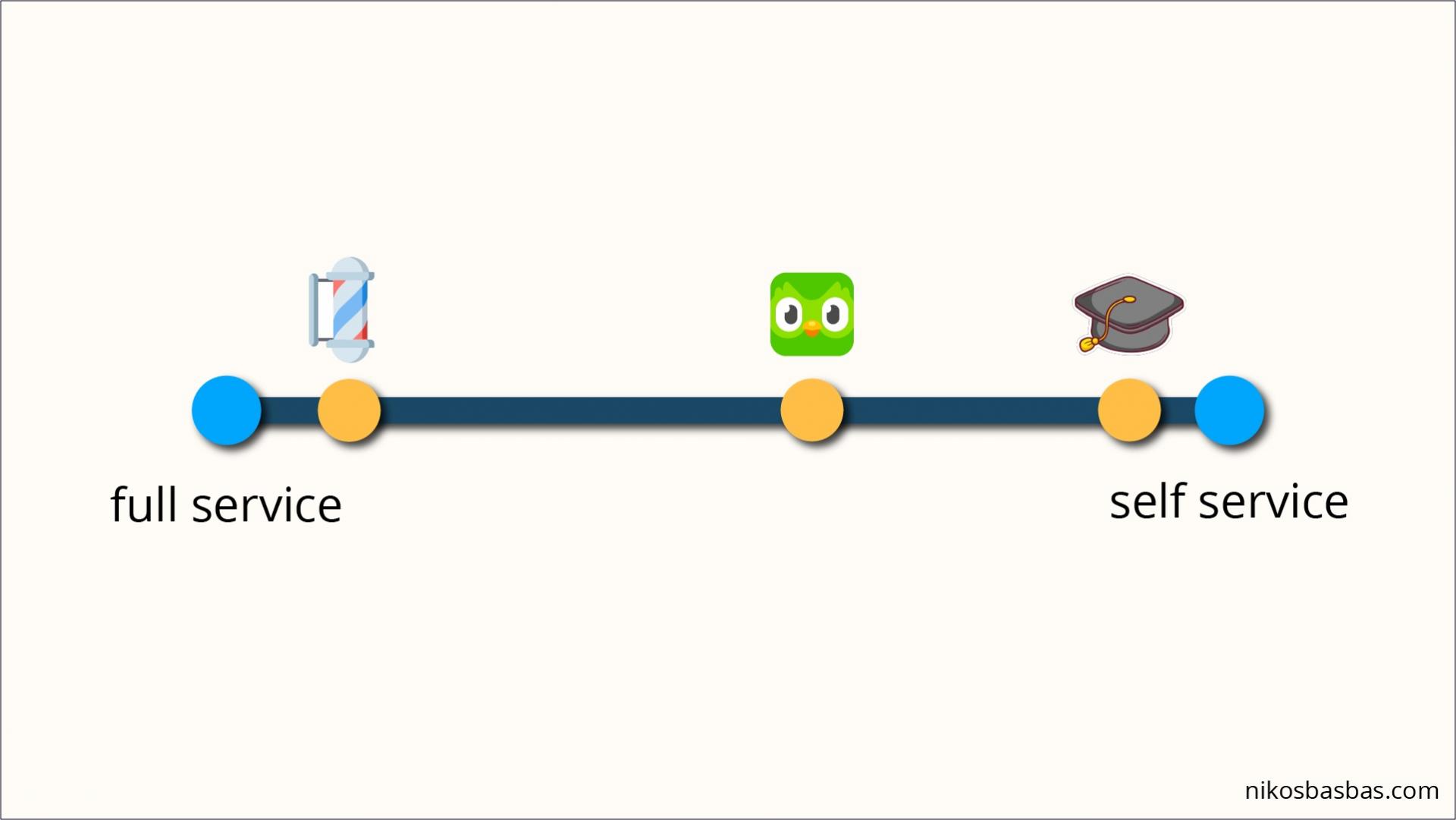
This brings us full circle back to the beginning of this post. I think Roger and his students don't disagree on whether education is a service, but where on the full-service - self-service continuum it should be placed. Students feel delivering education should be more than teaching content (as it can often be studied independently online), and they expect the university to help them learn it. Roger, on the other hand, is afraid too much spoon feeding will leave students without discipline, diligence, and self-directedness, all extremely valuable general life skills.
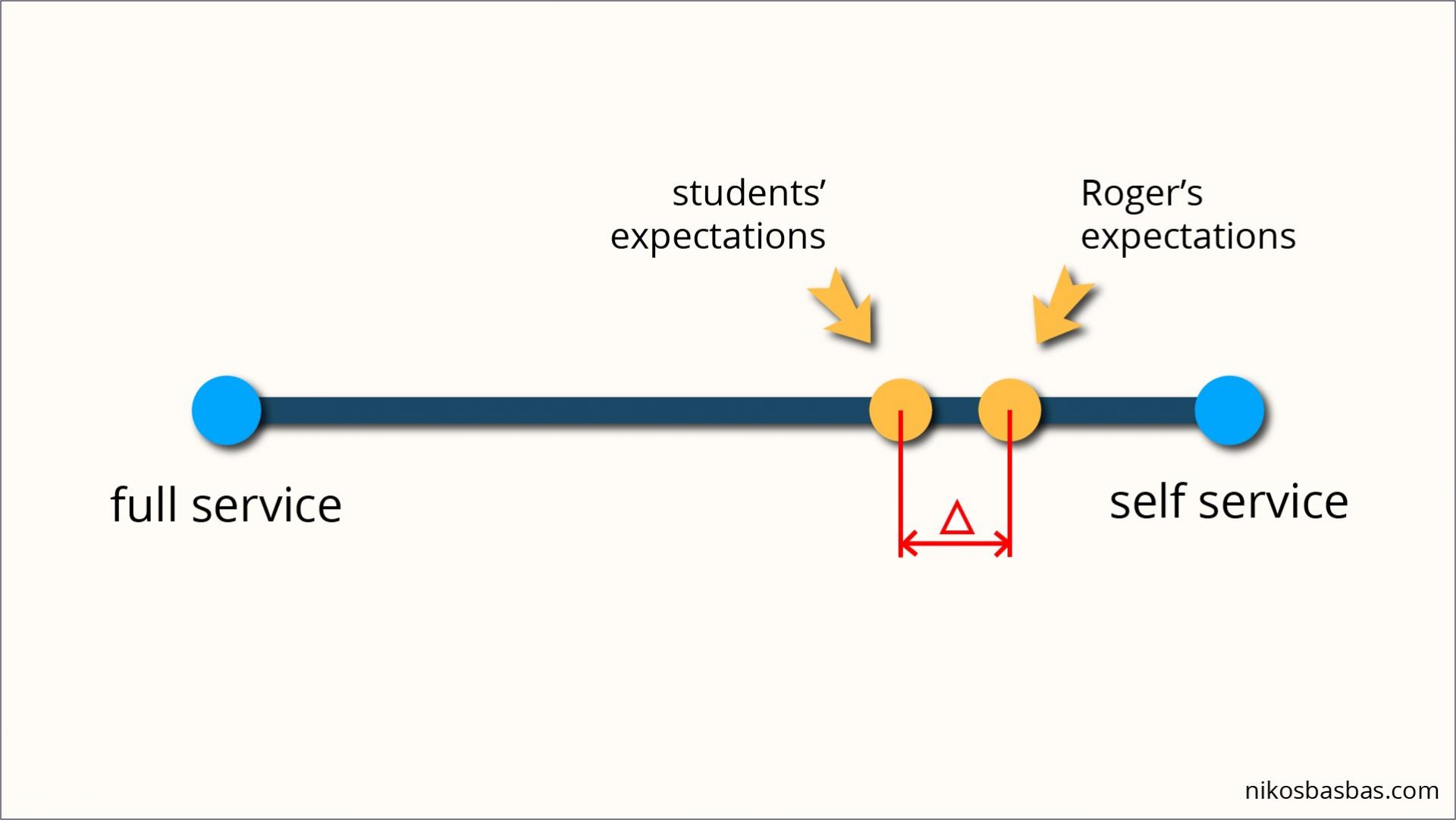
Both Roger and his students are right in their own way. So, how do we square this circle? I believe the institution’s leadership should step in and communicate clearly to both students and staff the extent to which the learning process should be facilitated. What should their position be? That is a question for a future post.
Sources:
Definition of a service: McConnell, Campbell R.; et al. (2009). Economics. Principles, Problems and Policies (PDF) (18th ed.). New York: McGraw-Hill. ISBN 978-0-07-337569-4., Glossary, p. G-1.
Images of a barber pole and graduate hat: Freepik and Gohsantosadrive, respectively. Downloaded from Flaticon.
